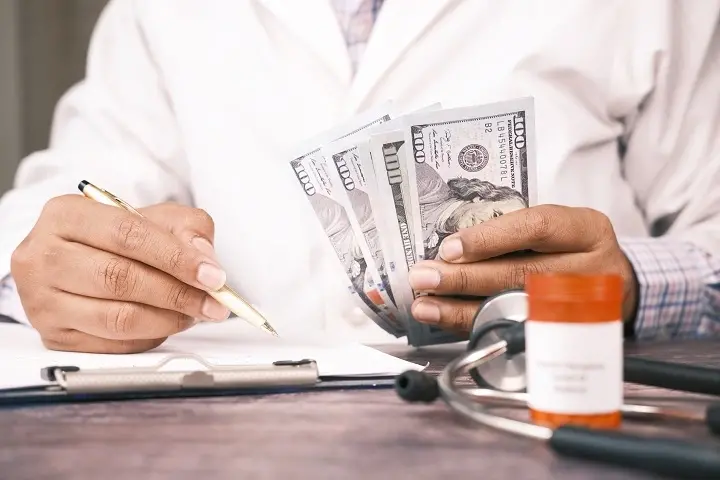Does Medical Debt Affect Your Credit Score ?

Medical emergencies are difficult enough without considering the financial cost they impose. Unpaid medical bills can substantially lower your credit score, which would make qualifying for loans, rent, and even some employment more difficult. But specifically, how may medical debt affect your credit, and how can you try to minimize the damage? Let me deconstruct it right here.
Does Medical Debt Always Hurt Your Credit?
The good news is not all medical debt is equally hefty. The following explains how medical bills could lower or raise your credit score:
On-time payment of your medical bills will help to avoid credit score damage and prevent credit agencies from reporting your spending. This pertains to both directly paid rates from hospitals or clinics and those reimbursed by insurance with remaining patient obligations.
Recent changes will cause your credit report to remove outstanding medical collections under $500. For those with less medical debt, this is a nice break.
Should your medical debt be more than $500 and still overdue, it will be transferred to collections depending on the healthcare provider after a predetermined period—usually 60 to 120 days. Once it reaches collections, it will be noted to credit bureaus and reduce your credit score.
How Can Medical Debt Hurt Your Credit Score?
In several ways, overdue medical bills can seriously lower your credit score:
From the date of first delinquency, late payments, and collections remain on your credit report for seven years, therefore depressing your score throughout that time.
Medical debt contributes to your overall debt utilization ratio or the percentage of available credit you are using. Using Debt-to-Credit utilization greater than thirty percent will reduce your score.
Negative marks on your credit report from collection accounts indicate even more lowering of your score.
What You Can Do About Medical Debt and Your Credit Score
Don't start to freak out if you have medical debt! These steps will enable you to minimize damage and improve your credit score:
See your healthcare provider or insurance company to review a payment schedule or to work out a reduced amount. Share your financial circumstances and find out whether they would be of use.
First pay off your medical debt, especially concerning collections, to remove negative marks from your credit report. If you would be approved for a lower interest rate, consider a debt consolidation loan or a balance transfer credit card to streamline payments.
Review your credit records regularly; each bureau offers free copies annually; challenge any errors you find, including inaccurate medical debt records.
Consider working with a reputable credit repair organization focused on medical debt for challenging situations. But be careful and choose a reputable company running under legal constraints.
Additional Tips for Managing Medical Debt and Your Credit
Talk early. Tell your doctor straight once whether you anticipate problems paying a medical cost. They could have pay-back schedules or financial support initiatives.
Make regular payments and utilize your credit cards sensibly to keep your general credit use under control. This will help to slightly offset the negative consequences of medical debt.
If you do have not much credit history, consider getting a secured credit card and carefully using it over time to progressively build solid credit.
Recall: Usually, one can control and protect credit score using medical debt. Reaching your financial goals and overcoming this challenge calls for both proactive conduct and help as needed.
Call (888) 804-0104 to learn more about your credit score as of right now.